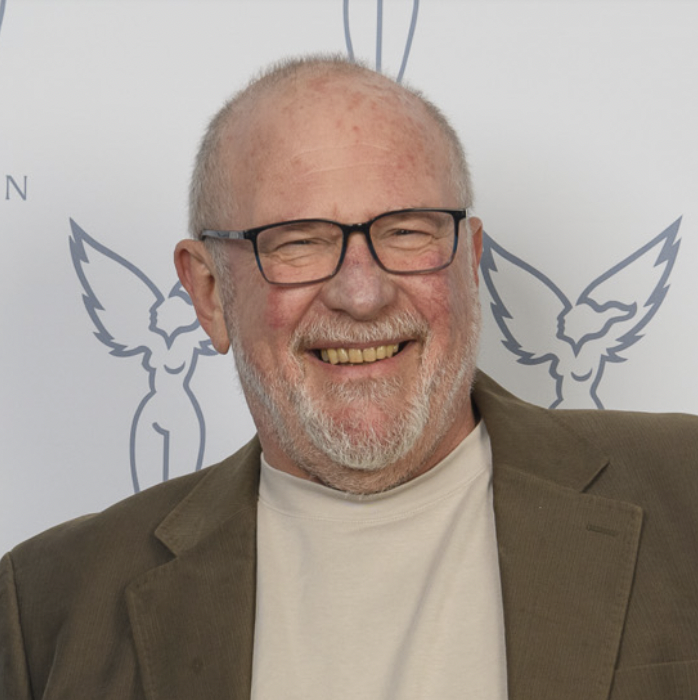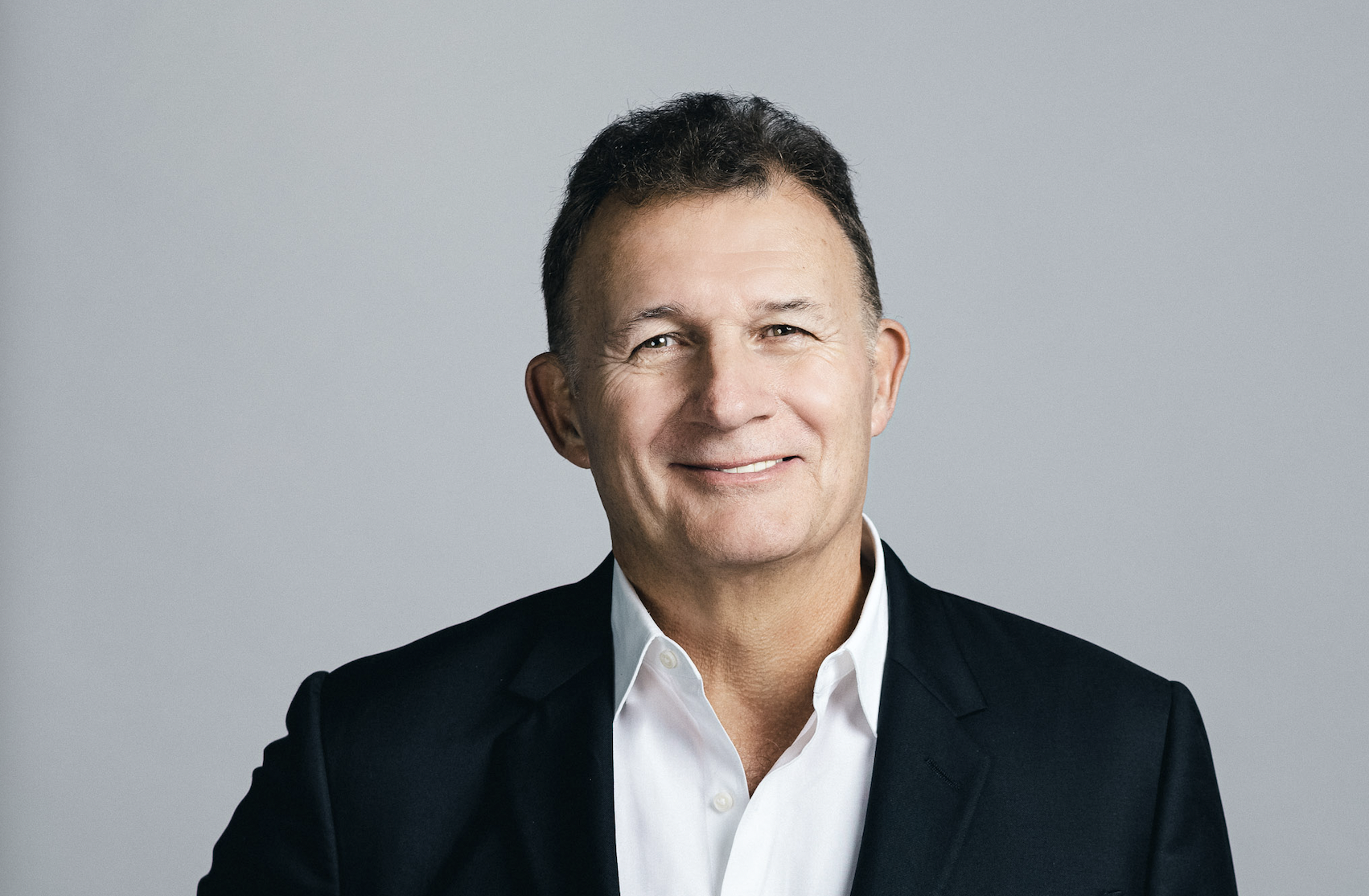It’s barely been a month since Joan Warner was farewelled at a lavish function at Darling Harbour after 20 years at the helm of Commercial Radio Australia. The global search for her replacement had been underway since last September.
Finally, the ‘fickle finger of fate’ pointed to Ford Ennals, a born and thoroughly bred, Englishman. His late uncle was Lord David Ennals -a minister in James Callaghan’s 1970s Labour government. Yet, Ennals has Aussie blood coursing through his veins. His mother hails from Armidale in northern NSW.
Mr Ennals was founding CEO of both Digital Radio UK and before that Digital UK, leading the successful digitisation and transformation of the both the TV and radio sectors, working with the BBC and commercial radio broadcasters Global and Bauer as well as multiple stakeholders such as the UK Government, media regulator Ofcom, the UK automotive industry and the retail supply chain. By 2022, 65% of all radio listening in the UK had transitioned to digital, more than triple the level of 21% when Ford Ennals set up Digital Radio UK.
Ford Ennals has had a senior marketing career based in both London and New York working as Chief Marketing Officer and Brands Director for leading blue-chip multinational brands including Mars, Reebok, British Airways and Lloyds Banking Group.
In 2007, he earned a spot on the UK Guardian’s Top 100 Media people. London’s analogue TV signal was due to be switched off around the same time as the 2008 Olympics.
“If it all goes wrong, I think people will look to us, quite rightly,” Ennals told the Daily Telegraph.
On publishing the Top 100, The Guardian admitted, “the panellists were divided over Ennals’ inclusion in this year’s list.
“He’s just a technocrat,” said one. However, another countered: “But he also decides how many grandmothers will still be able to watch Coronation Street next year. That makes him quite powerful.”
A marathon runner, who intends to run in the Sydney Marathon, Ennals once played football for England schoolboys.
Saxon: As you’d know, in the U.S., it’s customary for the outgoing president to leave an envelope in the desk drawer in the Oval Office for the incoming president. Did Joan Warner, leave you any notes of advice?
Ennals: Joan did better than that. She came to England, sat down across the table from me and took me through the work that CRA had done and what her thoughts about the future were and about the role itself. She said, You know, radio’s in great shape. It’s changing, but it’s all positive. And that I should have a good time. She said, I should enjoy the role. So, I intend to do that.
Saxon: In a recent media release, you were quoted as saying, “I’m truly excited to be joining the Australian radio sector at what is an inflection point in its history. Could you expand on what you see that inflection point to be?
Ennals: Sure. When I was in the UK I put together a market study of the international radio market looking at major markets around the world. UK, US, Germany, Australia was part of that… and you know, there’s many similarities between the markets. They all have the local differences, but what they all show is a major shift in the audio market going on, and radio is very much part of that, and in most cases leading it.
“What we do in the next two or three years will probably end up defining the future of radio.”
But what we see is the way that people consume audio changing significantly. In most countries, most advanced markets – and Australia is the same – about a third of households will have a smart speaker. People have a smart speaker, listening to more audio. The type of audio they’re listening to is changing. You know, when you and I grew up, we probably had a CD collection, but people don’t own music anymore. They stream it or they listen to radio, and that’s fundamentally different. So, you know, people are listening differently in the car and obviously there’s audio on demand growing strongly, whether it be catch up shows or podcasts. So, radio has an opportunity to both define and lead the growth of the audio market. And I think what we do in the next two or three years will probably end up defining the future of radio.
Saxon: We’ve been saying that now, for perhaps, the last ten years at least. And every time we settle on some sort of platform, it’s made obsolete and something else comes along. So, what will drive radio in the future?
Ennals: Welcome to the world, is all I can say. I mean, that’s just the way the world evolves. New technologies come along and replace previous technology. Things that we thought would be the greatest thing since sliced bread and last forever, are improved. I think that’s a great thing about the time that we live in. But I don’t think radio and audio content will ever be obsolete. I don’t think there will ever stop being a demand for it. I just think the way that it served up the platform as it’s served up into and probably in some cases the forms of the way the audio served up will change.
Saxon: Which is the greater threat, do you think, to commercial radio: streaming companies such as Spotify or the big tech companies, the big four, Google, Meta, Amazon and Apple?
Platforms like Google and Amazon are the gatekeepers…. access to platforms is something that we need to be across
Ennals: I think radio has shown how robust and resilient it is, and it’s always welcomed competition from every source and including against other of the radio groups. So, I don’t think competition is a problem. I think access to platforms is something that we need to be across because I think radio provides such a great experience in the car.
But it needs to be available in the car. And while radio’s had a total monopoly in the car in the past, it won’t have one in the future because the future will be about connected cars and we’ll see all forms of audio being pumped into a car by digital technology. Platforms like Google and Amazon are the gatekeepers… when people go on to a smart speaker and ask for a radio service, it’s up to them which radio service they provide.
What we want to make sure is that radio remains free and remains prominent, whether it be in your car or in your home.
Saxon: What kind of regulation regarding these organisations do you feel is required to, at least, keep the playing level?
Ennals: In the UK we came to an agreement with the UK Government that appropriate legislation would be drawn up related to access of registered services on, on digital platforms. That’s not defined yet… there’s a lot of work to be done. But I think they recognise that there’s a responsibility for government to support the radio sector.
Radio is a good citizen. It pays taxes in this country.
Saxon: Some critics might argue that government intervention amounts to protectionism and is not conducive to an open marketplace. As we know, technology, has disrupted many business models the point of extinction. What makes radio a special case?
Ennals: We’re talking about a sector and a service that provides the capability to have emergency messaging. In Australia and other parts of the world, whether it be fires or floods, we’ve seen outages. When people can’t use their smartphones and can’t get a signal, the ability to get vital emergency messaging across through a broadcast system is important and governments recognise that.
The other thing I would point out, and maybe you’d say press is the same and I wouldn’t disagree, is the ability to serve a local community in terms of information, advice, weather, traffic is something the communities really depend on. And radio also pays taxes in this country.
Radio is a good citizen. I think government recognises the importance of radio to people and communities. And I don’t think they’d want to see radio, local Australian radio, in any way be subjugated by global algorithms.
Saxon: It seems that almost all media is inexorably moving online. Is it not inevitable, that at some point, a broadcast licence will no longer be worth the paper it’s printed on? Even I don’t tune in to a radio at home anymore I’m using the RadioApp on my phone through a Bluetooth speaker.
Ennals: Well, God bless you. I mean, you might be right, but I don’t think that’s the view that the radio industry would have here or in other parts of the world. I think what we would expect to see, a very vibrant, healthy broadcast market for radio all for the foreseeable future.
When we looked at this in the UK and we did a lot of econometric projections through to 2035 and still in 2035, the majority of it will still be broadcast radio.
Saxon: In a couple of weeks, two highly respected radio veterans, Lars Peterson and Ron E Sparks are starting up their own radio station Sydney’s Classic Hits.com with inexpensive equipment and without a broadcast licence. Yet, they’ll be able to compete shoulder to shoulder online with all the big players. Is there a danger that these kind of start-ups could disrupt licenced broadcaster in the way Uber has disrupted Taxis?
Here, radio hasn’t tried to protect the past.
Ennals: Well, God bless them and bring it on. That’s what I say. You know, if the people who want to broadcast radio online and have got a fresh voice or a new concept, and they can bring something to the radio market that’s not currently provided, you know, good on them. That’s what competition is all about.
What we’ve seen is that the existing broadcast organisations in this country have innovated, they’ve invested and they move ahead of the times. That’s why radio is in good shape.
Here, radio hasn’t tried to protect the past. We recognise the digital media future; we recognise we need to be on new platforms. We recognise, in some areas, we need to collaborate. We recognise that we need to invest in podcasting. We recognise we need to monitor and measure these new areas. So yeah, I mean, I think new competition is great, but I think the existing guys are doing a really good job of both defending and building on their patch.

Peter Saxon

